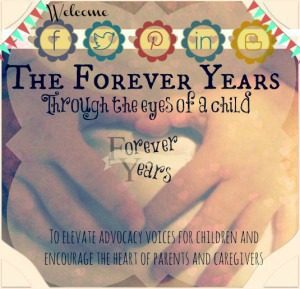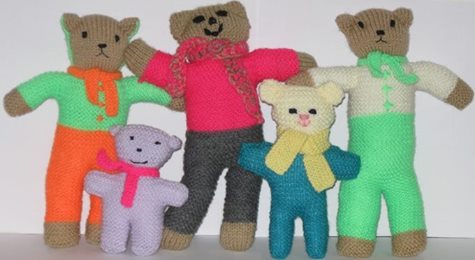
“A 2003 UNICEF report said New Zealand had the third-worst rate of abuse and neglect of children in the OECD group of developed countries and Helen Clark, the prime minister at the time the law was passed, called the country’s child abuse record “a stain on our international reputation”. (Original story here)
What successive New Zealand Governments, including that of Helen Clark, would claim is that New Zealand has a solid track record of respecting the rights of the child …
However, let’s look at New Zealand today re child rights.
- New Zealand has the highest rate of domestic violence in the developed world
- Between the years of 2007 – 2010 data showed that 1 in 6 Pakeha children (white European), 1 in 4 Pacific Island children and 1in 3 Māori children were living in poverty (figures show that children in homes below the poverty line increased from 22 per cent in 2007 to 28 per cent in 2010, and had dropped back only slightly to 27 per cent by 2012). By 2015 child poverty rates were back to 2007 – 2010 highs.
- A 2003 UNICEF report demonstrated that New Zealand has one of the highest rates of child death from maltreatment (physical abuse and neglect) among rich OECD countries. NZ ranked 25th on a league table of 27 countries with 1.2 deaths per 100,000 children
- Over one in four NZ adults has experienced childhood trauma or abuse, family violence and/or sexual assault.

- NZ Police respond to one ‘family violence’ call every seven minutes. Police say that in 60% of domestic violence cases children are also being abused.
- An international survey found that one in four New Zealand girls is sexually abused before the age of 15, the highest rate of any country examined.
- Research shows the police only hear about 20% of all family violence incidents and 10% of sexual violence offences.
- Rates of child abuse in New Zealand have risen by 32% in the last five years, with instances happening to children who are already in the care of the state.
- New Zealand’s suicide rate for 15-19 year olds is one of the highest in the OECD and double that of neighbouring Australia.
- New Zealand was called to task by the United Nations Committee on the Rights of the Child in June, 2015 for failing to adequately protect children. The UN report heavily criticised aspects of law and government programmes which failed to address high child mortality rates, unequal access to services for Māori children and a lack of data around child abuse.

- In 2013-14 there were 117 children in the custody of Child, Youth and Family (CYF) reported to be abused; 88 were in the care of a CYF caregiver, 25 were formally placed with their parents but still officially in CYF custody, and five were abused while living with an unapproved caregiver or in an unapproved placement. A 2015 report by the Children’s Commissioner slammed the government’s handling of children in State care. Principal Judge Andrew Becroft said the report was a vital piece of work. He said the Youth Court dealt with the most damaged, dysfunctional and disordered young people in New Zealand, and the overwhelming majority of them had a care and protection background. Judge Becroft said it sounded simplistic, but what the report highlighted was the need to do the care and protection work better. “So that we’re not left, for instance, with, as I understand it, 83 percent of prison inmates under 20 have a care and protection record with Child, Youth and Family.”
New Zealand ratified the UN Convention on the Rights of the Child (UNCRC) in 1993, the 131st country to do so.
 However, New Zealand has entered a reservation to the UN Convention on the Rights of the Child which reads: “Nothing in this Convention shall affect the right of the Government of New Zealand to continue to distinguish as it considers appropriate in its law and practice between persons according to the nature of their authority to be in New Zealand including but not limited to their entitlement to benefits and other protections described in the Convention, and the Government of New Zealand reserves the right to interpret and apply the Convention accordingly.”
However, New Zealand has entered a reservation to the UN Convention on the Rights of the Child which reads: “Nothing in this Convention shall affect the right of the Government of New Zealand to continue to distinguish as it considers appropriate in its law and practice between persons according to the nature of their authority to be in New Zealand including but not limited to their entitlement to benefits and other protections described in the Convention, and the Government of New Zealand reserves the right to interpret and apply the Convention accordingly.”
Reservations to human rights treaties create technical difficulties that do not arise for treaties on other topics because the intended beneficiaries of obligations in human rights treaties are the people in each state, rather than the other state parties to a treaty. It is therefore more problematic to allow states to enter reservations to a human rights treaty, which allows states to modify the extent of their obligations then it would be for an ordinary treaty that has been entered into between states on a reciprocal basis. In short, when a state enters a reservation to a human rights treaty the reservation acts to diminish the rights of the people/citizens of that state.
 Of particular concern are widely formulated reservations, such as that which NZ has entered to the Rights of the Child, which essentially render ineffective all Covenant rights which would require any change in national law to ensure compliance with Covenant obligations. No real international rights or obligations have thus been accepted. And when there is an absence of provisions to ensure the Covenant rights may be sued on in domestic courts, and, further, a failure to allow individual complaints to be brought to the Committee under the first Optional Protocol all the essential elements of the Covenant guarantees have been removed.
Of particular concern are widely formulated reservations, such as that which NZ has entered to the Rights of the Child, which essentially render ineffective all Covenant rights which would require any change in national law to ensure compliance with Covenant obligations. No real international rights or obligations have thus been accepted. And when there is an absence of provisions to ensure the Covenant rights may be sued on in domestic courts, and, further, a failure to allow individual complaints to be brought to the Committee under the first Optional Protocol all the essential elements of the Covenant guarantees have been removed.
In simple terms, while New Zealand is a signatory party to the UNCRC its ratification of the Convention is little more than window dressing because New Zealand has effectively entered a clause/reservation which negates its responsibility to respect the rights of the child according to international human rights norms.
Committee’s recommendation
“In the spirit of the Vienna Declaration and Programme of Action adopted by the World Conference on Human Rights in June 1993 which urged States to withdraw reservations to the Convention on the Rights of the Child, the Committee wishes to encourage the State party to take steps to withdraw its reservations to the Convention. Furthermore, the Committee encourages New Zealand to extend the application of the Convention with respect to the territory of Tokelau.”

Source: http://newzealandchildabuse.com/helen-clark-ex-nz-pm-a-nominee-for-un-secretary-general-youd-have-to-be-kidding-right/














